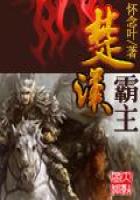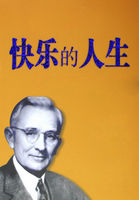With this view, and in imitation of Buddha, who, before being advanced to the rank of a divinity, had quitted his royal palace and seraglio and retired from the world, Badonsachen withdrew from his palace to an immense pagoda, the largest in the empire, which he had been engaged in constructing for many years. Here he held conferences with the most learned monks, in which he sought to persuade them that the five thousand years assigned for the observance of the law of Buddha were now elapsed, and that he himself was the god who was destined to appear after that period, and to abolish the old law by substituting his own. But to his great mortification many of the monks undertook to demonstrate the contrary; and this disappointment, combined with his love of power and his impatience under the restraints of an ascetic life, quickly disabused him of his imaginary godhead, and drove him back to his palace and his harem. The king of Siam is venerated equally with a divinity.
His subjects ought not to look him in the face; they prostrate themselves before him when he passes, and appear before him on their knees, their elbows resting on the ground. There is a special language devoted to his sacred person and attributes, and it must be used by all who speak to or of him. Even the natives have difficulty in mastering this peculiar vocabulary. The hairs of the monarch's head, the soles of his feet, the breath of his body, indeed every single detail of his person, both outward and inward, have particular names. When he eats or drinks, sleeps or walks, a special word indicates that these acts are being performed by the sovereign, and such words cannot possibly be applied to the acts of any other person whatever. There is no word in the Siamese language by which any creature of higher rank or greater dignity than a monarch can be described; and the missionaries, when they speak of God, are forced to use the native word for king.
But perhaps no country in the world has been so prolific of human gods as India; nowhere has the divine grace been poured out in a more liberal measure on all classes of society from kings down to milkmen. Thus amongst the Todas, a pastoral people of the Neilgherry Hills of Southern India, the dairy is a sanctuary, and the milkman who attends to it has been described as a god. On being asked whether the Todas salute the sun, one of these divine milkmen replied, Those poor fellows do so, but I, tapping his chest, I, a god! why should I salute the sun? Every one, even his own father, prostrates himself before the milkman, and no one would dare to refuse him anything. No human being, except another milkman, may touch him; and he gives oracles to all who consult him, speaking with the voice of a god.
Further, in India every king is regarded as little short of a present god. The Hindoo law-book of Manu goes farther and says that even an infant king must not be despised from an idea that he is a mere mortal; for he is a great deity in human form. There is said to have been a sect in Orissa some years ago who worshipped the late Queen Victoria in her lifetime as their chief divinity. And to this day in India all living persons remarkable for great strength or valour or for supposed miraculous powers run the risk of being worshipped as gods. Thus, a sect in the Punjaub worshipped a deity whom they called Nikkal Sen. This Nikkal Sen was no other than the redoubted General Nicholson, and nothing that the general could do or say damped the ardour of his adorers. The more he punished them, the greater grew the religious awe with which they worshipped him. At Benares not many years ago a celebrated deity was incarnate in the person of a Hindoo gentleman who rejoiced in the euphonious name of Swami Bhaskaranandaji Saraswati, and looked uncommonly like the late Cardinal Manning, only more ingenuous. His eyes beamed with kindly human interest, and he took what is described as an innocent pleasure in the divine honours paid him by his confiding worshippers.
At Chinchvad, a small town about ten miles from Poona in Western India, there lives a family of whom one in each generation is believed by a large proportion of the Mahrattas to be an incarnation of the elephant-headed god Gunputty. That celebrated deity was first made flesh about the year 1640 in the person of a Brahman of Poona, by name Mooraba Gosseyn, who sought to work out his salvation by abstinence, mortification, and prayer. His piety had its reward. The god himself appeared to him in a vision of the night and promised that a portion of his, that is, of Gunputty's holy spirit should abide with him and with his seed after him even to the seventh generation. The divine promise was fulfilled. Seven successive incarnations, transmitted from father to son, manifested the light of Gunputty to a dark world. The last of the direct line, a heavy-looking god with very weak eyes, died in the year 1810.
But the cause of truth was too sacred, and the value of the church property too considerable, to allow the Brahmans to contemplate with equanimity the unspeakable loss that would be sustained by a world which knew not Gunputty.
Accordingly they sought and found a holy vessel in whom the divine spirit of the master had revealed itself anew, and the revelation has been happily continued in an unbroken succession of vessels from that time to this. But a mysterious law of spiritual economy, whose operation in the history of religion we may deplore though we cannot alter, has decreed that the miracles wrought by the god-man in these degenerate days cannot compare with those which were wrought by his predecessors in days gone by; and it is even reported that the only sign vouchsafed by him to the present generation of vipers is the miracle of feeding the multitude whom he annually entertains to dinner at Chinchvad.















